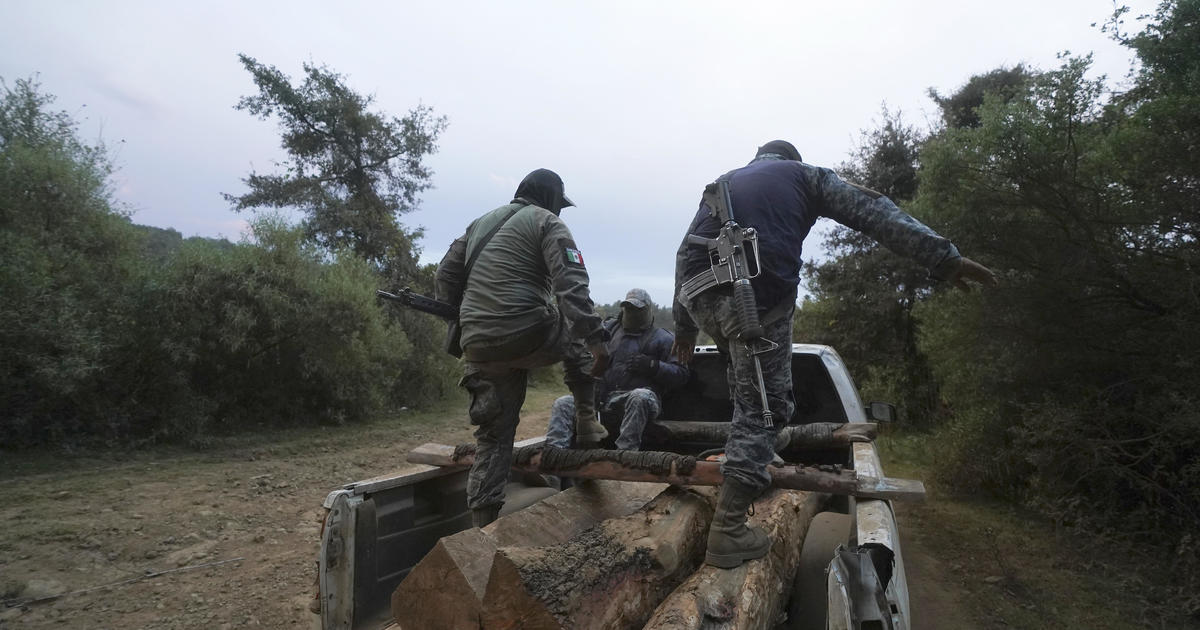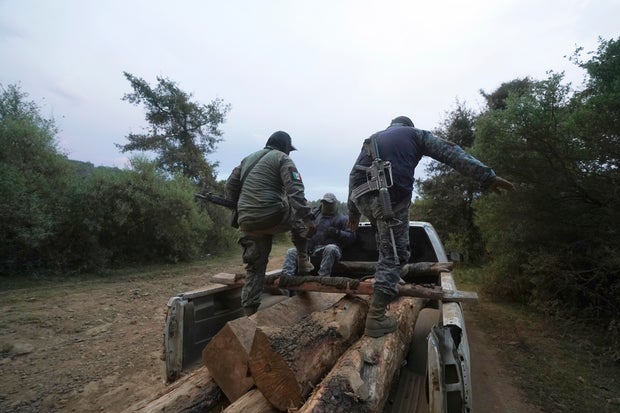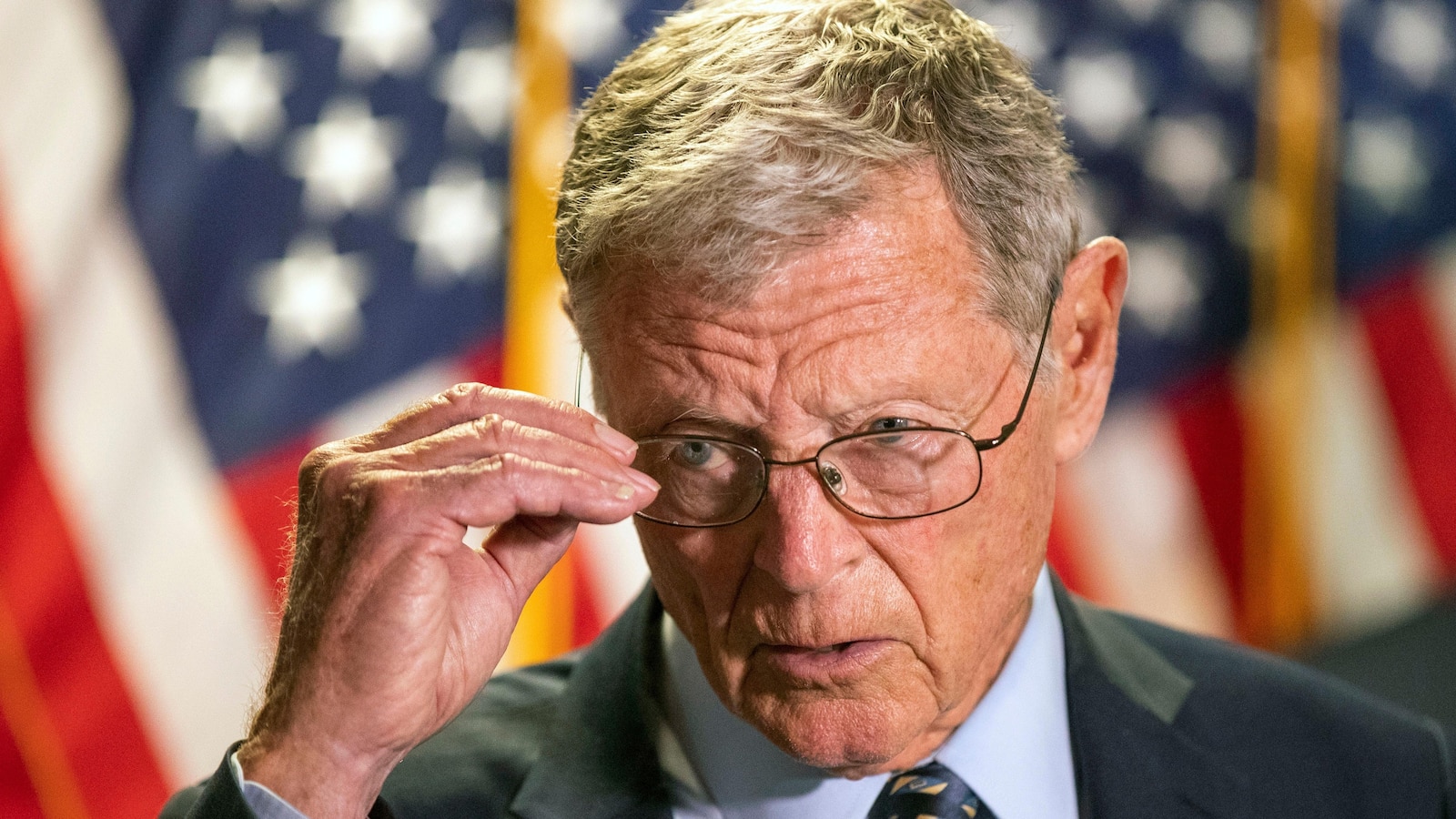[ad_1]
Mexico’s traditional and Indigenous community police forces are coming under increasingly deadly fire from drug cartels, authorities said Monday.
Adrián López, the chief prosecutor in the western state of Michoacan, confirmed that gunmen linked to drug cartels shot to death seven members of the community police force in the town of Coahuayana over the weekend.
The community guards were killed just days after seven members of an Indigenous community police force were kidnapped, apparently by cartel gunmen, and put through “hell” in another Michoacan town before they were freed Friday.
In the face of cartel turf wars that have emptied towns in the Mexican countryside, many places have turned to “community police,” who are relatively untrained members of the town who volunteer or are paid a small stipend to protect residents.
More common in Indigenous towns – which have centuries of experience in organizing and defending themselves – the community police are a more established and trusted force than the ephemeral “self defense” squads that flourished in Michoacan between 2013 and 2014 to fight the cartels but were quickly corrupted.
But while they enjoy the trust of their fellow townspeople, the community guards can’t match the firepower of the cartels that want their land.
López, the state prosecutor, said the attack in Coahuayana Saturday was related to battles by drug cartels to control the coastal area, a main route for landing seaborne shipments of cocaine.
Fernando Llano / AP
“This all involves the decision of the members of criminal groups to gain territory and carry out illegal activities, mainly drug smuggling,” he said.
Coahuayana (koh-why-YAH-nah), which sits on the Pacific coast near the neighboring state of Colima, is particularly attractive for the cartels; go-fast boats transporting cocaine from South America have a straight route here, but often dump floating bales of cocaine at sea with location devices, to be picked up and taken ashore.
“The area on the coast of Michoacan and Colima has been ideal for picking up packages of cocaine from South America,” López said. “There have been innumerable seizures of packages of cocaine by the Navy.”
While nobody in Coahuayana would say which gang carried out the killings, suspicion immediately turned to the Jalisco New Generation cartel, which has long been active in the region.
“It was hell there”
The cartel is also suspected of being responsible for the kidnapping of seven community guards – six men and one woman – who were abducted last Tuesday and released Friday in the Purepecha Indigenous township of Tangamandapio (tahn-gah-man-DAH-pee-oh) Michoacan.
Those traditional officers are known as “Kuárichas,” (KWAH-rich-ahs) in Purepecha. In Indigenous towns, such forces have legal status to handle minor offenses.
The seven were abducted Tuesday, and a massive search operation was launched involving helicopters, the military and state police. None would say who kidnapped them or what was done to them, but suspicion once again fell on the Jalisco cartel, based in the neighboring state of that name.
One of the officers, Brayan Javier, said after his release, “the truth is, it was hell there, because of a lot of things that happened.”
Another of the rescued guards, Luis Reyes, said their liberation was due to the unity and strength of the Purepecha community that helped in the search effort.
“Thanks to the entire town, all the Purepecha people, we are strong,” Reyes said.
While Reyes and the others remain convinced that the Indigenous resilience and community ties can fend off the cartels, that is less than clear.
In recent months in the southern state of Chiapas – one of the most heavily Indigenous parts of Mexico – the area near the border with Guatemala has essentially fallen under the control of warring drug gangs, causing some Chiapas residents to give up and flee into neighboring Guatemala.
Jalisco cartel also targeting Americans
The Jalisco New Generation cartel has also targeted American citizens. Last month, the U.S. imposed sanctions on a group of Mexican accountants and firms allegedly linked to a timeshare fraud ring run by the cartel in a multi-million dollar scheme targeting Americans.
The U.S. Treasury’s Office of Foreign Assets Control, or OFAC, has been chasing fraudsters using call centers controlled by the Jalisco drug cartel. They have scammed at least 600 Americans out of about $40 million, officials said.
They also began contacting people claiming to be employees of OFAC itself, and offering to free up funds purportedly frozen by the U.S. agency, which combats illicit funds and money laundering.
OFAC announced a new round of sanctions in November against three Mexican citizens and 13 companies they said are linked to the Jalisco cartel, known by its Spanish initials as the CJNG, which has killed call center workers who try to quit.




